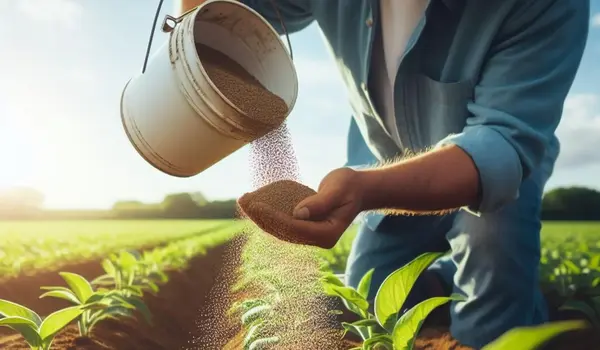Introduction At BulkAgro Chem, we are dedicated to revolutionizing agricultural practices through our comprehensive range of high-quality fertilizers and soil amendments. As a leading supplier in the agricultural sector, we understand that the success of farming operations hinges on the effective use of fertilizers tailored to specific crop needs. With our commitment to innovation and excellence, we offer products designed to optimize nutrient delivery, enhance soil health, and drive superior crop yields. Understanding the intricacies of fertilizer selection is crucial for farmers who wish to maximize their productivity and ensure sustainable farming practices. Our extensive product lineup and expert guidance are tailored to support farmers in making well-informed decisions that can significantly impact their crop outcomes. Benefits of Choosing the Right Fertilizer Optimal Crop Growth: The right fertilizer provides essential nutrients that are vital for the healthy development and growth of crops, ensuring robust plant health and productivity. Increased Yield: Proper fertilization directly enhances crop yield by supplying the nutrients needed for plants to reach their full growth potential, leading to higher production levels. Improved Soil Health: Appropriate fertilizer choices contribute to the maintenance and improvement of soil fertility, enhancing its structure and biological activity for long-term sustainability. Efficient Resource Use: Selecting the correct fertilizer improves nutrient uptake by plants, reducing waste and the need for excessive applications, thereby optimizing resource use and reducing costs. Reduced Environmental Impact: Fertilizers chosen to minimize runoff and leaching contribute to environmental protection by preventing nutrient pollution and promoting sustainable practices. Enhanced Crop Quality: Proper fertilization improves the quality of the crops, including attributes such as size, color, and nutritional value, which can positively influence market value. Cost Savings: Efficient use of fertilizers leads to reduced wastage and additional input costs, providing farmers with significant cost savings and improved economic returns. Increased Resistance to Pests and Diseases: Nutrient-rich plants are better equipped to withstand pest attacks and diseases, resulting in fewer crop losses and reduced need for chemical treatments. Factors to Consider When Selecting Fertilizers Nutrient Requirements of the Crop: Each crop has specific nutrient needs, which can vary depending on the growth stage. For instance, leafy greens typically require higher nitrogen levels, while root crops benefit from phosphorus. Accurate knowledge of these needs helps in selecting the most effective fertilizer for optimal growth. Soil Type and Quality: Conducting soil tests to determine nutrient levels, pH, and organic matter content is crucial. This information allows for the selection of fertilizers that address specific soil deficiencies and improve overall soil health. For example, clay soils may need different fertilization strategies compared to sandy soils. Crop Growth Stage: Fertilizer needs vary throughout a crop's lifecycle. Early stages may require a balanced fertilizer, while flowering and fruiting stages might benefit from higher levels of potassium and phosphorus. Adjusting fertilizer types and application rates to match growth stages ensures effective nutrient delivery. Application Methods: The method of fertilizer application—whether broadcast, incorporated into the soil, or applied as a foliar spray—can affect its effectiveness. Understanding the best application method for the crop and soil conditions ensures efficient nutrient use and minimizes losses. Environmental Considerations: Selecting fertilizers with minimal environmental impact is essential. Opting for slow-release or controlled-release formulations can reduce nutrient runoff and leaching, protecting water resources and promoting environmentally sustainable practices. Conclusion Effective fertilizer selection is a cornerstone of successful crop management and sustainable agriculture. By carefully considering factors such as crop nutrient needs, soil quality, growth stages, application methods, and environmental impact, farmers can make informed decisions that enhance crop productivity and ensure long-term soil health. BulkAgro Chem is committed to supporting farmers with top-tier fertilizers and expert advice, helping them navigate the complexities of fertilizer choice. Our goal is to enable farmers to achieve optimal crop growth, improve soil conditions, and realize significant economic benefits. Proper fertilizer management not only boosts yields and enhances soil fertility but also fosters environmentally responsible farming practices that benefit both the land and the bottom line.
Bulkagrochem
Submit your contact number & get exciting offer
Bulkagrochem.com
Bulk Purchase & Get Bulk Discount
Share your number to receive customized bulk pricing, availability updates, and exclusive offers directly via WhatsApp.

Recommended Products



